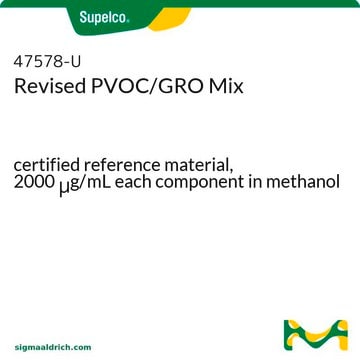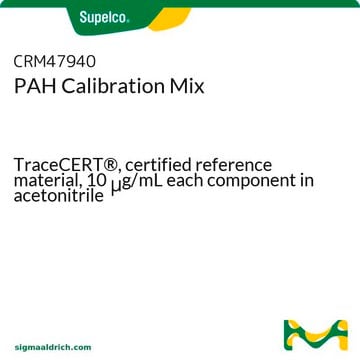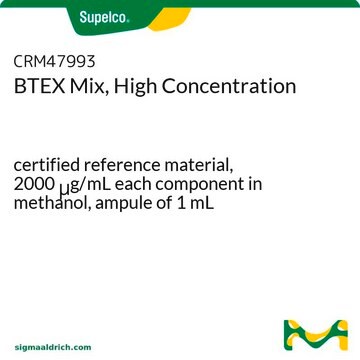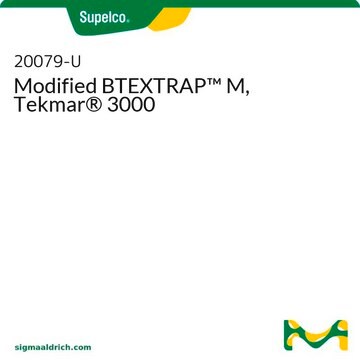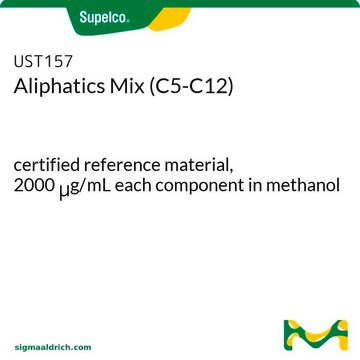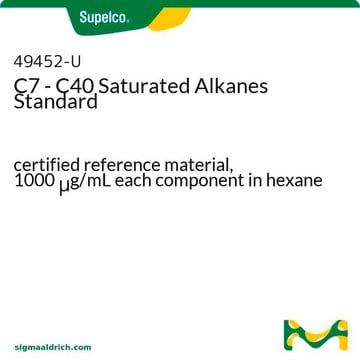47577-U
EPA GRO Mix
certified reference material, in methanol (varied)
About This Item
Recommended Products
grade
certified reference material
TraceCERT®
Agency
EPA
610
product line
TraceCERT®
CofA
current certificate can be downloaded
feature
standard type calibration
packaging
ampule of 1 mL
concentration
in methanol (varied)
technique(s)
HPLC: suitable
gas chromatography (GC): suitable
suitability
suitable for GRO (Fuels (TPH))
application(s)
environmental
format
multi-component solution
storage temp.
2-30°C
General description
Application
Other Notes
Legal Information
Analyte
Signal Word
Danger
Hazard Statements
Precautionary Statements
Hazard Classifications
Acute Tox. 3 Dermal - Acute Tox. 3 Inhalation - Acute Tox. 3 Oral - Flam. Liq. 2 - STOT SE 1
Target Organs
Eyes,Central nervous system
Storage Class Code
3 - Flammable liquids
WGK
WGK 2
Flash Point(F)
49.5 °F - closed cup
Flash Point(C)
9.7 °C - closed cup
Personal Protective Equipment
Choose from one of the most recent versions:
Already Own This Product?
Find documentation for the products that you have recently purchased in the Document Library.
Protocols
US EPA Method 8015 (modified): GC Analysis of Gasoline Range Organics (GRO) on SLB®-5ms, Direct Injection
There are three types of analyses: GRO, DRO, and TPH. The published methods are simply variations of these to meet the different analytical needs of the individual agencies.
There are three types of analyses: GRO, DRO, and TPH. The published methods are simply variations of these to meet the different analytical needs of the individual agencies.
There are three types of analyses: GRO, DRO, and TPH. The published methods are simply variations of these to meet the different analytical needs of the individual agencies.
Chromatograms
suitable for GCOur team of scientists has experience in all areas of research including Life Science, Material Science, Chemical Synthesis, Chromatography, Analytical and many others.
Contact Technical Service